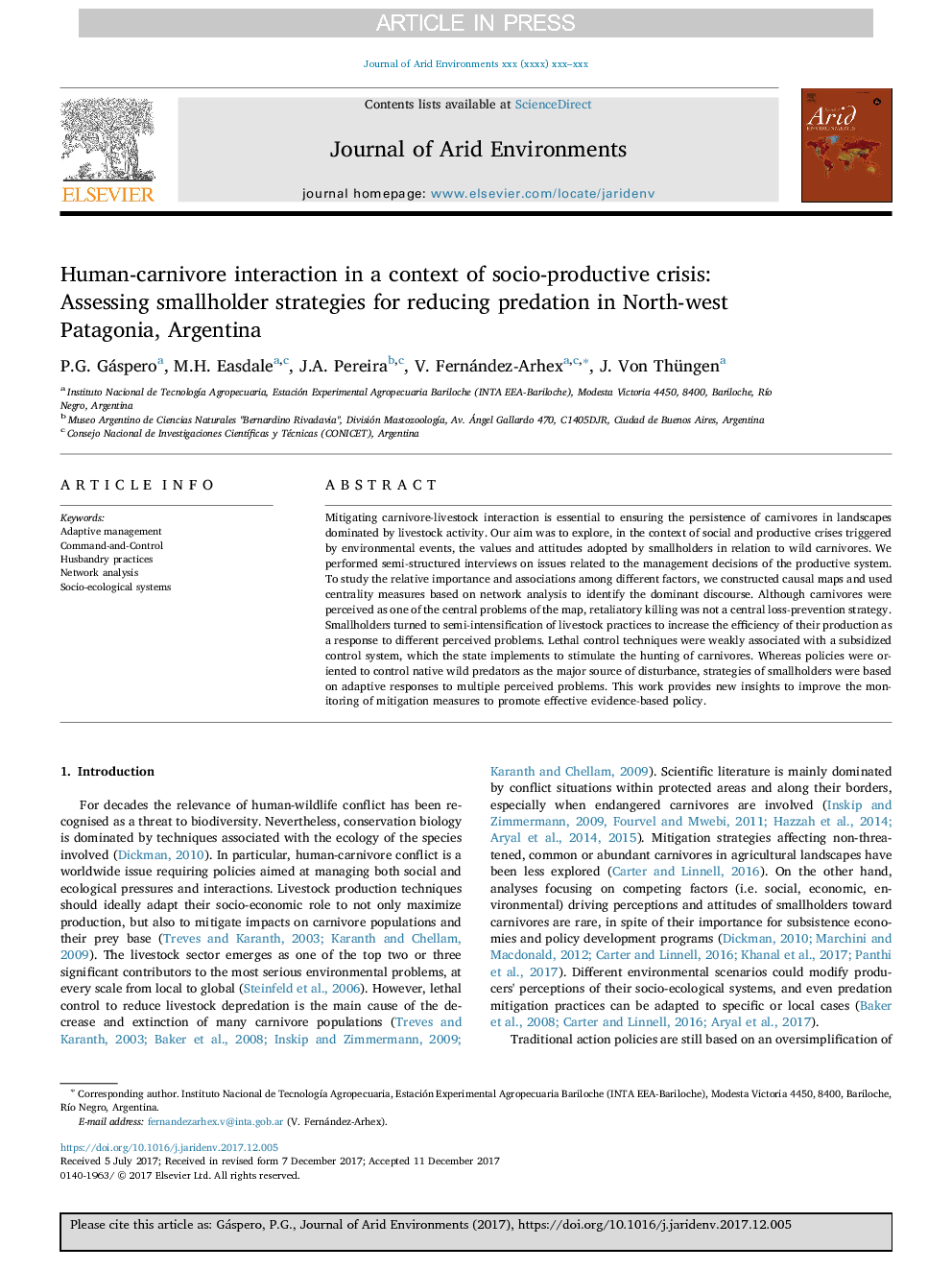ترجمه فارسی عنوان مقاله
تعامل انسان و گوشتخواران در یک زمینه بحران اجتماعی-تولیدی: ارزیابی استراتژی های کوچک برای کاهش شورش در شمال غرب پاتاگونیا، آرژانتین
عنوان انگلیسی
Human-carnivore interaction in a context of socio-productive crisis: Assessing smallholder strategies for reducing predation in North-west Patagonia, Argentina
| کد مقاله | سال انتشار | تعداد صفحات مقاله انگلیسی |
|---|---|---|
| 100338 | 2018 | 7 صفحه PDF |
منبع

Publisher : Elsevier - Science Direct (الزویر - ساینس دایرکت)
Journal : Journal of Arid Environments, Volume 150, March 2018, Pages 92-98
ترجمه کلمات کلیدی
مدیریت انطباقی دستور و کنترل، شیوه های شغلی، تجزیه و تحلیل شبکه، سیستم های اجتماعی-محیطی،
کلمات کلیدی انگلیسی
Adaptive management; Command-and-Control; Husbandry practices; Network analysis; Socio-ecological systems;

